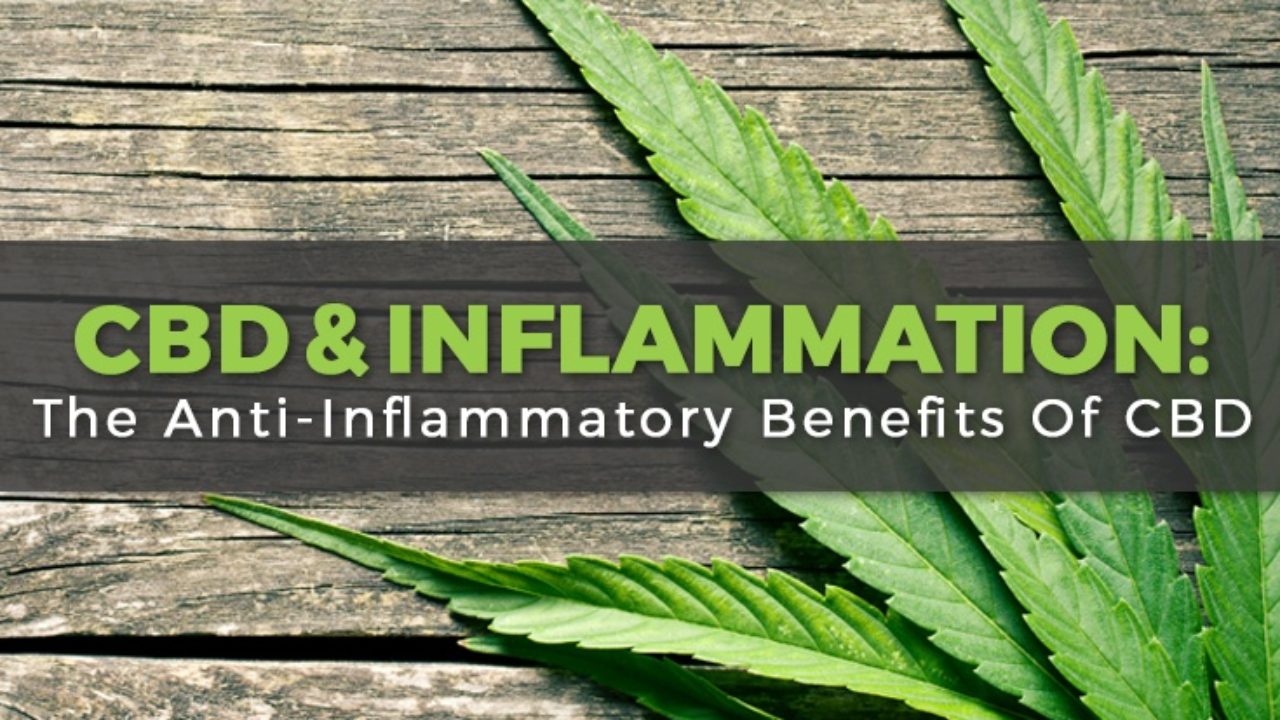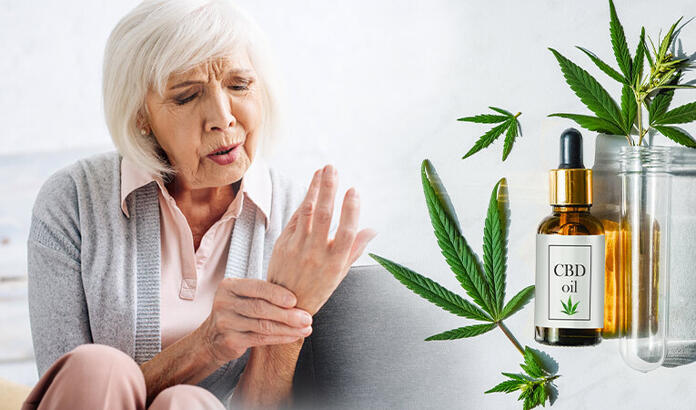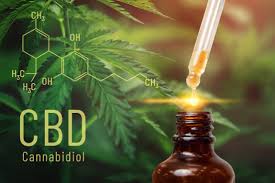In recent years, CBD has skyrocketed in popularity, becoming a household name and finding its way into various products across the market. From skincare to pet treats, CBD seems to be everywhere. But amidst this CBD craze, it’s crucial to understand the legal landscape surrounding this compound. Knowledge about CBD legality not only protects consumers but also enables them to make informed decisions about their health and well-being.
CBD, short for cannabidiol, is one of the many compounds found in the cannabis plant. Unlike its well-known counterpart, THC, CBD does not produce psychoactive effects. Instead, it is praised for its potential therapeutic benefits, such as relieving pain, reducing anxiety, and improving sleep quality.
Understanding CBD legality is of utmost importance, given the diverse regulations and restrictions that exist at the federal, state, and international levels. The legal status of CBD can vary significantly depending on its source, extraction method, and the jurisdiction in which it is being sold.
With the CBD industry experiencing rapid growth, it’s crucial for consumers, retailers, and manufacturers to have a comprehensive understanding of the legal framework surrounding CBD products. This knowledge empowers individuals to navigate the market confidently and ensures compliance with relevant laws and regulations.
In this comprehensive guide, we will delve into the intricacies of CBD legality, shedding light on federal laws, the 2018 Farm Bill, state regulations, FDA guidelines, international perspectives, and the implications of CBD on drug testing. By the end of this article, you will have a solid understanding of the legal landscape surrounding CBD, enabling you to make informed decisions about its use and purchase.
So, let’s embark on this journey together and unravel the complex web of CBD legality.
What is CBD?
In order to fully grasp the intricacies of CBD legality, it is essential to first understand what CBD is. CBD, or cannabidiol, is a naturally occurring compound found in the cannabis plant. Unlike its counterpart, THC (tetrahydrocannabinol), CBD does not cause psychoactive effects. This means that consuming CBD does not result in a “high” sensation commonly associated with marijuana use.
CBD has gained significant popularity due to its potential health benefits. From relieving pain and inflammation to reducing anxiety and promoting better sleep, CBD has been touted as a versatile remedy for a wide range of conditions. As a result, various forms of CBD products have flooded the market, providing consumers with numerous options to incorporate CBD into their daily routines.
Different forms of CBD products cater to different preferences and needs. CBD oil, for instance, is one of the most common and versatile forms. It can be consumed orally, applied topically, or even added to food and beverages. CBD edibles, such as gummies, chocolates, and baked goods, offer a convenient and tasty way to enjoy the benefits of CBD. For those seeking targeted relief, CBD topicals, such as creams and lotions, can be directly applied to the skin. Other popular forms include CBD capsules, tinctures, and vaping products. Each form has its own unique characteristics and advantages, allowing individuals to find the most suitable option for their lifestyle and desired effects.
Understanding the different forms of CBD is crucial in navigating the world of CBD legality. By familiarizing oneself with the various product options available, individuals can make informed decisions and ensure compliance with applicable laws and regulations. Whether you’re interested in exploring the benefits of CBD gummies or considering CBD capsules for a more discreet consumption method, having a comprehensive understanding of CBD and its diverse product offerings is fundamental to your CBD journey.
For more detailed information about CBD, including its benefits, dosage guidelines, and potential side effects, you can refer to our comprehensive article on what is CBD.
The Legal Status of CBD
In order to fully understand the legality of CBD, it is important to have a clear understanding of the federal laws and regulations surrounding this rapidly growing industry. CBD, short for cannabidiol, is a compound found in the cannabis plant that has gained significant popularity for its potential therapeutic benefits. However, due to its association with cannabis, there are legal considerations that consumers and businesses need to be aware of.
Federal Laws and Regulations
At the federal level, the legal status of CBD is still evolving. The Controlled Substances Act (CSA) is the primary federal law that governs the regulation of substances with the potential for abuse. Under the CSA, marijuana is classified as a Schedule I controlled substance, meaning it is illegal to manufacture, distribute, or possess.
However, in 2018, the passage of the Agriculture Improvement Act, commonly known as the Farm Bill, brought significant changes to the legal status of CBD. The Farm Bill legalized the cultivation of hemp, defined as cannabis with less than 0.3% THC (tetrahydrocannabinol) content by dry weight. THC is the psychoactive component of cannabis that produces a “high” sensation.
Hemp-derived CBD vs. Marijuana-derived CBD
With the legalization of hemp cultivation, CBD derived from hemp is now considered legal at the federal level, as long as it meets the criteria set forth by the Farm Bill. Hemp-derived CBD products are widely available and can be found in various forms such as oils, tinctures, capsules, edibles, and topicals.
On the other hand, marijuana-derived CBD, which is derived from cannabis plants with higher THC content, is still classified as a Schedule I controlled substance. This means that marijuana-derived CBD is illegal under federal law, regardless of whether it is used for medical or recreational purposes.
Navigating the Legal Landscape
It is crucial to note that while hemp-derived CBD is legal at the federal level, individual states have the authority to impose their own regulations and restrictions. This has resulted in a patchwork of laws across the country, with some states fully embracing CBD and others imposing stricter regulations.
For consumers and businesses, this means that the legal status of CBD can vary depending on where they are located. It is essential to stay informed about the specific laws and regulations in your state to ensure compliance.
In conclusion, while hemp-derived CBD has been legalized at the federal level, the legal landscape surrounding CBD is still complex. Understanding the differences between hemp-derived CBD and marijuana-derived CBD, as well as staying informed about state laws and regulations, is essential for anyone interested in the CBD industry.
For more information on CBD and its potential benefits, check out our CBD facts page. Stay tuned for the next section, where we will delve deeper into the impact of the 2018 Farm Bill on CBD legality.
The 2018 Farm Bill
The 2018 Farm Bill is a significant piece of legislation that has had a profound impact on the legality of CBD. It is essential to understand the provisions of this bill in order to navigate the complex world of CBD regulations.
Explanation of the Farm Bill and its impact on CBD legality
The Farm Bill, officially known as the Agricultural Improvement Act of 2018, is a comprehensive piece of legislation that covers various aspects of agriculture and rural development. However, one of the most notable provisions of the bill is the legalization of hemp and hemp-derived products, including CBD.
Prior to the passage of the Farm Bill, the legal status of CBD was uncertain and varied from state to state. This ambiguity created confusion for consumers and businesses alike. However, with the enactment of the Farm Bill, hemp and hemp-derived CBD products became federally legal, as long as they contain no more than 0.3% THC (the psychoactive compound found in marijuana).
This legalization has opened up a world of opportunities for the CBD industry, allowing for the production and sale of CBD products on a much larger scale. It has also given consumers access to a wider range of CBD options, including CBD gummies, CBD capsules, and CBD edibles.
Hemp cultivation and CBD production guidelines
The Farm Bill not only legalized hemp and CBD but also established guidelines for the cultivation of hemp and the production of CBD. These guidelines are designed to ensure that hemp is grown and CBD is produced in a safe and regulated manner.
Under the Farm Bill, the cultivation of hemp is regulated by the United States Department of Agriculture (USDA). Farmers who wish to grow hemp must obtain a license from their state’s agricultural department and comply with the USDA’s regulations. These regulations include requirements for testing the THC levels of hemp plants to ensure compliance with the 0.3% THC limit.
In addition to cultivation guidelines, the Farm Bill also established regulations for CBD production. CBD manufacturers are required to adhere to good manufacturing practices (GMP) to ensure the safety and quality of their products. This includes rigorous testing of CBD products to verify their potency and purity.
By setting these guidelines, the Farm Bill aims to protect consumers and promote transparency within the CBD industry. It provides a framework for the responsible production and sale of CBD products, giving consumers peace of mind when purchasing CBD tinctures, CBD for insomnia, or any other CBD product.
In conclusion, the 2018 Farm Bill has had a significant impact on the legality of CBD. It has legalized hemp and hemp-derived CBD products, paving the way for the growth of the CBD industry. The bill has also established guidelines for hemp cultivation and CBD production to ensure consumer safety and product quality. As the CBD landscape continues to evolve, staying informed about the provisions of the Farm Bill is crucial for both businesses and consumers alike.
State Laws and Regulations
When it comes to the legality of CBD, it’s important to note that regulations can vary from state to state within the United States. While CBD is legal at the federal level, states have the authority to enact their own laws and regulations regarding its production, sale, and use. This means that what may be legal in one state might not be legal in another.
The variations in CBD legality across different states can be attributed to a number of factors. Some states have taken a more permissive approach to CBD, allowing its use for both medical and recreational purposes. Others have imposed more stringent regulations, limiting the use of CBD to specific medical conditions or setting restrictions on the THC content of CBD products.
To illustrate the differences in CBD regulations, let’s take a look at a few examples:
1. California: Known for its progressive stance on cannabis, California has legalized both medical and recreational use of CBD. This means that residents of California can legally purchase and use CBD products without a prescription.
2. Texas: While Texas allows the use of CBD for certain medical conditions, the state has imposed strict regulations on CBD products. For CBD to be legal in Texas, it must contain less than 0.3% THC and be prescribed by a qualified physician.
3. New York: New York has taken a more liberal approach to CBD. The state has legalized the use of CBD for both medical and recreational purposes, allowing residents to freely purchase and use CBD products.
These examples highlight the diverse range of CBD regulations that exist across different states. It’s important for individuals to familiarize themselves with the specific laws and regulations in their state to ensure compliance.
To stay informed about CBD legality in your state, it’s recommended to consult reliable sources such as government websites or reputable CBD advocacy organizations. These sources can provide the most up-to-date information on CBD regulations and any changes that may occur.
In the next section, we will explore the regulations set forth by the FDA regarding CBD products and their impact on legality and consumer safety.
CBD gummies | CBD capsules | CBD edibles
FDA Regulations
The Food and Drug Administration (FDA) plays a crucial role in regulating various products, and CBD is no exception. As the popularity of CBD products continues to rise, it is important to understand the FDA’s stance on these products and the regulations surrounding them.
The FDA’s stance on CBD products is that they are currently not approved for use in food, dietary supplements, or cosmetics. The agency has expressed concerns about the safety and efficacy of CBD products, citing potential health risks and the lack of scientific evidence to support their use.
While the FDA recognizes the potential therapeutic benefits of CBD, they are focused on ensuring the safety of consumers. They have stated that more research is needed to fully understand the effects of CBD and its potential interactions with other medications.
However, it is important to note that the FDA has approved one CBD medication called Epidiolex for the treatment of two rare forms of epilepsy. This medicine has undergone rigorous clinical trials and has been proven to be safe and effective for its intended use.
FDA-approved CBD medications undergo a thorough review process to ensure their quality, safety, and effectiveness. This approval provides assurance to patients and healthcare professionals that the medication meets the FDA’s standards.
It is important for consumers to be aware of the FDA’s regulations and guidelines when considering the use of CBD products. While there are many CBD products available on the market, not all of them have undergone the same level of scrutiny as FDA-approved medications.
By staying informed about the FDA’s regulations, consumers can make educated decisions about the CBD products they choose to use. It is always recommended to consult with a healthcare professional before starting any new treatment regimen, including the use of CBD.
In the next section, we will explore the international regulations surrounding CBD, providing insight into how different countries approach the legality of CBD products. Stay tuned to learn more about the global landscape of CBD regulations.
International CBD Regulations
As the popularity of CBD continues to soar, it’s crucial to understand the legal landscape of CBD not only within your own country but also across the globe. CBD regulations vary from one country to another, making it essential for consumers and businesses alike to navigate the legal framework surrounding this compound. In this section, we will provide an overview of CBD legality in different countries and highlight examples of countries with varying CBD regulations.
Overview of CBD Legality in Different Countries
CBD regulations can differ significantly from country to country, reflecting the diverse perspectives and approaches taken by governments worldwide. While some nations have embraced CBD and its potential benefits, others have imposed strict regulations or even outright bans on CBD products. It is important to note that CBD’s legal status is often tied to the legal status of cannabis in general, given that CBD is derived from the cannabis plant.
Examples of Countries with Different CBD Regulations
- United States: In the United States, CBD regulations can be complex due to the interplay between federal and state laws. While the 2018 Farm Bill legalized hemp-derived CBD at the federal level, individual states have their own regulations regarding CBD production, sale, and use. Some states have embraced CBD and allow it to be sold and consumed freely, while others impose restrictions or require specific licensing.
- Canada: Canada legalized both medical and recreational cannabis in 2018, which consequently legalized CBD derived from cannabis plants. However, CBD products must be obtained from licensed producers and meet strict quality and safety standards set by Health Canada.
- United Kingdom: In the United Kingdom, CBD products are legal as long as they contain no more than 0.2% THC (the psychoactive compound found in cannabis). CBD products must also be properly labeled and cannot make any medical claims unless authorized as a medicine by the Medicines and Healthcare products Regulatory Agency (MHRA).
- Switzerland: Switzerland has taken a more liberal approach to CBD. Here, CBD products with a THC content of less than 1% are considered legal and can be freely sold and consumed. Swiss regulations focus primarily on the THC content rather than the CBD content of products.
- Australia: In Australia, CBD is a regulated substance and can only be legally obtained with a prescription. The Therapeutic Goods Administration (TGA) oversees the regulation of CBD products, ensuring they meet strict quality and safety standards.
These examples highlight the diversity of CBD regulations around the world, demonstrating the need for individuals and businesses to stay informed about the legal status of CBD in their respective countries. It’s important to consult local laws and regulations or seek legal advice to ensure compliance.
By understanding the international CBD regulations, you can make informed decisions when it comes to purchasing, using, or selling CBD products, whether you’re traveling abroad or conducting business in different countries.
Continue reading about the legal status of CBD or learn more about the benefits of CBD.
CBD and Drug Testing
CBD has gained immense popularity in recent years for its potential health benefits and therapeutic properties. However, one area of concern for many individuals considering CBD use is its impact on drug tests. It is essential to understand the potential concerns surrounding CBD and drug testing to make informed decisions about its usage.
Potential concerns with CBD and drug tests
Drug tests are commonly used by employers and organizations to screen for the presence of illegal substances or drugs. These tests typically analyze urine, blood, saliva, or hair samples to detect the presence of specific compounds, including THC (tetrahydrocannabinol), the psychoactive component of cannabis.
While CBD itself is not typically tested for in standard drug tests, there is a possibility of THC contamination in some CBD products. THC is the compound responsible for the psychoactive effects of cannabis, and it is classified as a controlled substance in many jurisdictions. Although CBD products derived from hemp contain only trace amounts of THC (less than 0.3%), there is still a potential risk of THC accumulation in the body over time.
Understanding the THC content in CBD products is crucial when it comes to drug testing. It’s important to note that CBD products can be classified into three categories:
- Full-spectrum CBD: These products contain all the naturally occurring compounds found in the cannabis plant, including THC. While the THC content is typically within the legal limit, it can still result in a positive drug test, especially if consumed in large quantities or over an extended period.
- Broad-spectrum CBD: These products undergo additional processing to remove THC while retaining other beneficial cannabinoids and compounds. However, it’s essential to ensure that the product has undergone rigorous third-party testing to verify its THC content.
- CBD isolate: This form of CBD is pure and contains no other cannabinoids or compounds. Since it does not contain THC, it should not result in a positive drug test. Individuals concerned about THC detection may prefer CBD isolate products.
To mitigate the risk of THC detection in drug tests, individuals who are subject to regular screening should consider opting for THC-free CBD products. These products are specifically formulated to contain no detectable THC, providing peace of mind for those concerned about potential drug test results.
It’s worth noting that regulations surrounding CBD and drug testing can vary depending on the jurisdiction. It is crucial to stay informed about the specific laws and regulations in your area to ensure compliance.
In conclusion, while CBD itself is typically not tested for in standard drug screenings, there is a potential risk of THC contamination in some CBD products, which could result in a positive drug test. Understanding the THC content in CBD products and opting for THC-free alternatives can help mitigate this concern. Staying informed about CBD legality and regulations is essential for individuals considering CBD use, especially those subject to regular drug tests.
For more information on CBD and its various aspects, check out our CBD information page.
Conclusion
In conclusion, staying informed about CBD legality is of utmost importance for anyone interested in using or selling CBD products. The ever-evolving legal landscape surrounding CBD can be complex and confusing, making it crucial to stay up-to-date with the latest regulations and guidelines.
As CBD continues to gain popularity for its potential health benefits, understanding its legal status is essential for both consumers and businesses. While CBD is federally legal in the United States, there are still variations in state laws that can affect its availability and usage.
The future of CBD regulations is still uncertain, as the industry continues to grow and more research is conducted. It is important to keep an eye on any updates or changes in legislation that may impact the legal status of CBD.
By staying informed about CBD legality, individuals can ensure that they are using CBD products in compliance with the law and avoid any potential legal consequences. Additionally, businesses can navigate the legal landscape with confidence, ensuring that they are operating within the boundaries set by regulatory authorities.
In order to make informed decisions about CBD, it is also important to educate oneself about the benefits, dosage, and potential side effects of CBD. Websites like Mr. Mean Green offer valuable resources and information on various topics related to CBD, including what is CBD, CBD gummies, CBD dosage, and CBD side effects.
As more research and scientific studies are conducted, the understanding of CBD and its potential benefits will continue to expand. It is an exciting time for the CBD industry, and by staying informed and engaged, individuals can make the most of this natural compound’s potential.
In summary, the importance of staying informed about CBD legality cannot be overstated. By staying up-to-date with the latest regulations, individuals can ensure that they are using CBD products legally and responsibly. With the future of CBD regulations still evolving, it is crucial to remain knowledgeable and adaptable to any changes that may arise. So, stay informed, stay curious, and embrace the potential of CBD within the boundaries of the law.




